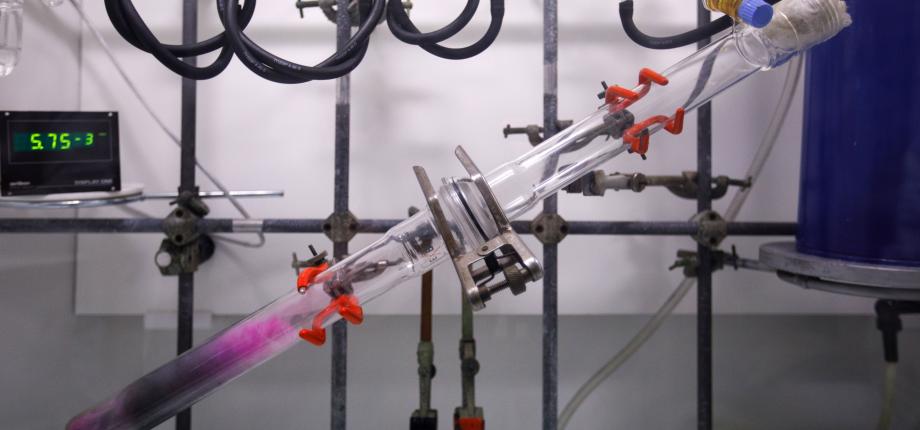f-Orbitals and Reactivity

Work on lanthanides is part of the laboratory's history, with activities begun by F. Nief in the late 1990s. Initially driven by know-how in the synthesis of original ligands - notably phosphorus-based ligands - the work gained momentum and international recognition with the development of the chemistry of organometallic complexes of low-valence lanthanides, in particular around divalent thulium. The recruitment of G. Nocton to the laboratory in 2011 has enabled us to consolidate this historical orientation and to strengthen a focus on the study of the physical properties of lanthanides, particularly intermediate valences. Inscribed in these fields, with strong interests in small molecule activation reactivity and catalysis, a first ERC Starting Grant project was awarded in 2016 and started in April 2017. This was a unifying project for the laboratory, since it enabled work on lanthanides to be aggregated with that on catalysis and photo-catalysis, with the collaborative help of G. Danoun and the recruitment of T. Simler in 2022, who began activities in terms of molecule activation. In 2022, an ERC Consolidator Grant was awarded for the synthesis of f-element compounds containing novel aromatic ligands for the Phi bond. This project provided an opportunity to develop work on actinides and, in particular, the (photo)redox chemistry of uranium. These projects are in addition to our long-standing work on the synthesis of original organometallic compounds of lanthanides and the study of their physical properties (magnetism and optics).
Current projects include:
Converting of waste into energy and valuable products
Upgrading carbon dioxide in organometallic chemistry (ANR JCJC MultiCO 2023-2026)
Carbon dioxide removal by direct air capture (Fondation X project with the LPP, 2024-2028)
Photo-reforming of alcoholic residues for hydrogen production (Prematuration IPParis, 2023-2024)
Actinide and nuclear chemistry
Fundamental chemistry of organometallic complexes of heavy elements (ERC CoG 2022-2027)
Low valence uranium complexes for reduced water electrolysis (Orano project)
Photo-catalysis based on uranyl complexes (ANR UraMeth, 2024-2028)
Electrochemistry of platinoids for CO2 conversion (Euratom Parcoval project, 2024-2028)
Methodology in organic synthesis
Innovative catalysis using metal complexes in non-typical oxidation states
Catalysis and couplings based on nickel complexes (ANR NiCatEther, 2023-2027)
Quantum technologies
Molecular magnets based on lanthanides (ANR RelaxMax, 2020-2024)
Molecular spin manipulation for quantum information (PEPR MolQIF project, 2025-2029)


